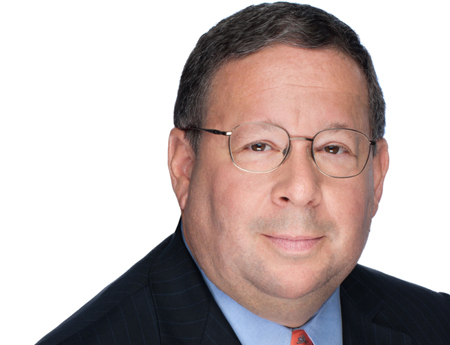Cohen: Competitive Market Is 'Tipping' in Consumers' Favor

The smarter way to stay on top of broadcasting and cable industry. Sign up below
You are now subscribed
Your newsletter sign-up was successful
Comcast executive VP David Cohen plans to tell Senate Commerce Committee members at a hearing Wednesday entitled "At A Tipping Point: Consumer Choice, Consolidation and the Future Video Marketplace," that he agrees the market is at such a tipping point, and that robust competition is tipping "decidedly" in favor of consumers.
That is according to his prepared testimony for the hearing.
Cohen, who has been making the case inside the Beltway for allowing Comcast and Time Warner Cable to merge, says that with literally millions of viewing options MVPDs are having to work harder to compete against satellite companies, telcos and over-the-top providers.
He says this explosion in competition, investment and innovation is "great for consumers" and is a direct result of government policies.
With that as preamble, Cohen will make the pitch that allowing Comcast and TWC to merge will translate to more innovation, more competition, and more consumer benefit and that there will be plenty of other big companies, AT&T, Verizon, DirecTV, Dish, Amazon, Apple, Sony, Google, Netflix and Facebook competing for the attention and loyalty of video and broadband consumers.
"The increasing rivalry and experimentation among these national and global companies is a primary business driver for the Comcast/Time Warner Cable merger," he says.
Comcast and Cohen have been arguing that the company needs to grow, geographically in particular, to compete with national platforms and to have the scale to invest in next-generation broadband at faster speeds—something the government has been pushing the industry to accomplish—and provide innovative and accessible services for the disabled, including a programmable talking on-screen guide.
The smarter way to stay on top of broadcasting and cable industry. Sign up below
Comcast also makes the points that the combined company will have less than a 30% share of the MVPD market.
Cohen put in a plug for the FCC's planned new open Internet rules. Comcast is already subject to the FCC's old rules per an NBCU deal condition, but it was at the table when the 2010 compromise order was adopted and was "comfortable enough" with it to be bound by the deal condition even if the courts later struck it down, which was the case.
He said that Comcast "continues to advocate for reasonable and legally binding rules that protect all Internet users, not just our customers," and that Comcast agrees with FCC chairman Tom Wheeler that the court has given the FCC a path to new rules using existing authority. But he said that would not include rules that reclassify ISPs under some version of Title II common carrier regs.
He warned that Title II would create a "huge cloud" over the marketplace and be an immediate turn-off to investment and innovation in the sector.
Contributing editor John Eggerton has been an editor and/or writer on media regulation, legislation and policy for over four decades, including covering the FCC, FTC, Congress, the major media trade associations, and the federal courts. In addition to Multichannel News and Broadcasting + Cable, his work has appeared in Radio World, TV Technology, TV Fax, This Week in Consumer Electronics, Variety and the Encyclopedia Britannica.

